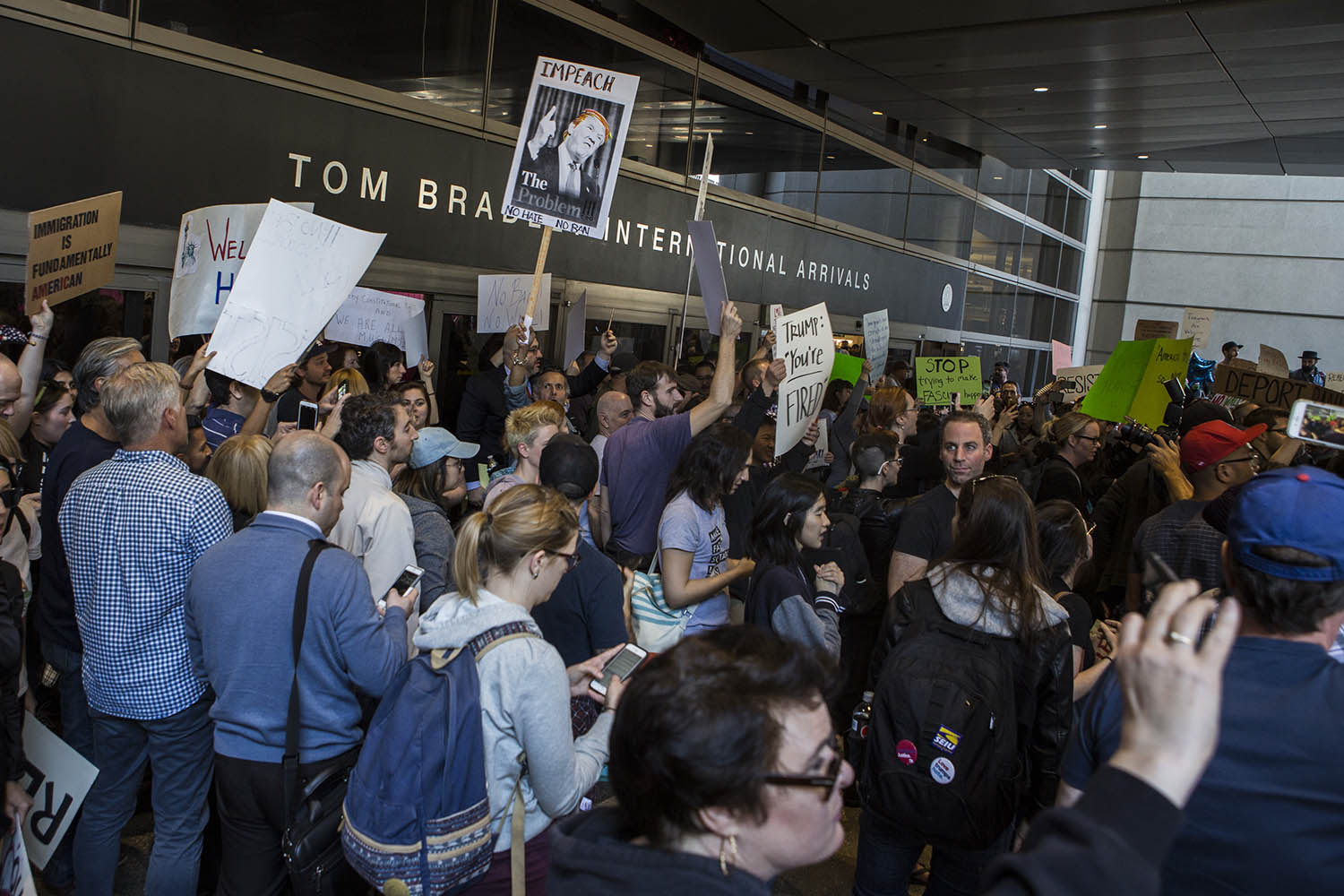The communications minister for Republic of the Congo awoke last Thursday to some surprising news. Scrolling through his social media feed, Thierry Moungalla discovered that citizens from the central African nation of six million people - dwarfed by its neighbour and near-namesake, the Democratic Republic of the Congo - would no longer be allowed to travel to the United States.
President Trump had issued a blanket travel ban to citizens of Congo, along with those from 11 other countries, many of them in Africa, because they all had a “large-scale presence of terrorists.”
“We are somewhat surprised,” Moungalla said. “Obviously, Congo is not a terrorist country, is not home to any terrorists, nor is it known for any terrorist tendencies. So we think this is a misunderstanding.”
Other nations on the list were similarly confused. A spokesperson for Eritrea told The Observer its government was awaiting “full clarification”, pointing out that his nation had an “impeccable track record of fighting fundamentalist terrorism.”
Chad is also on the list. Its military ruler, Mahamat Idriss Deby, was less conciliatory and announced his own visa ban on US citizens. “Chad has no planes to offer, no billions of dollars to give, but Chad has his dignity and pride,” said Deby, referring to the $400 million jet recently given to Trump by Qatar.
The other countries subject to full bans are Afghanistan, Myanmar, Equatorial Guinea, Haiti, Iran, Libya, Somalia, Sudan and Yemen. The order also restricts travel from Burundi, Cuba, Laos, Sierra Leone, Togo, Turkmenistan and Venezuela. Existing visa holders and residents are exempt from the ruling.
Trump claimed that the countries’ citizens have a habit of staying in the US after their visas expire. Sudanese visitors have an overstay rate of 26%, while the rate for people from Myanmar is 27%.
But the numbers involved are mostly small. In 2023, 16,000 Britons overstayed their US business or tourism visas – a figure higher than all the other countries subject to the full ban combined, discounting Haiti. For Somalia, the total number was just 14.
The curbs were introduced days after an Egyptian man, who had overstayed his visa, hurled Molotov cocktails at protesters demanding the release of Israeli hostages held by Hamas, injuring a dozen people. But Egypt, a key regional partner of the US and in receipt of $1.3 billion a year in American military aid, is absent from the list.
“They can caution Egypt but they can’t come out and say, ‘Your citizens are banned from coming to the US,’ whereas Sudan is a country they can take a stick to and beat, because we don’t have a government that can respond in kind,” said Dallia Abdelmoniem, a Sudanese civil society activist who lives in Cairo. “It’s just like after 9/11, when there were no Sudanese perpetrators, but we were banned. The vast majority were Saudis and other nationalities, but the ones whose nationals cause mayhem and trouble, they get a free pass.”
Newsletters
Choose the newsletters you want to receive
View more
For information about how The Observer protects your data, read our Privacy Policy
Abdelmoniem added that Sudanese and other Africans are already subject to stringent checks that make visiting the US difficult. Last year, she failed to obtain a visa to attend the UN General Assembly.
“Trump’s trying to placate his supporters and show he’s doing something, but it’s not really going to protect the US – few Sudanese go there,” she said. “It's not like we could pop up at passport control and be given entry to the US." The Trump administration placed Somalia on the list for being a country with “safe havens” for terrorists. For decades it has battled Al Shabab, a deadly al-Qaida franchise, with US help.
A senior Somali official said the characterisation was very unfair. “You can’t say Somalia is a safe haven for terrorism,” he said. “America sees Al Shabab as a Somali issue, but they want to attack America. They are contained to Somalia due to the sacrifices of Somali citizens.”
He added: “Nobody informed Somalia before, absolutely nobody. But we’re not surprised. America has cancelled key aid programmes in health, education and social protection. There’s a feeling across government and society that America doesn’t care about Africa in general, let alone Somalia.”
Photograph by Dania Maxwell/Bloomberg via Getty Images

